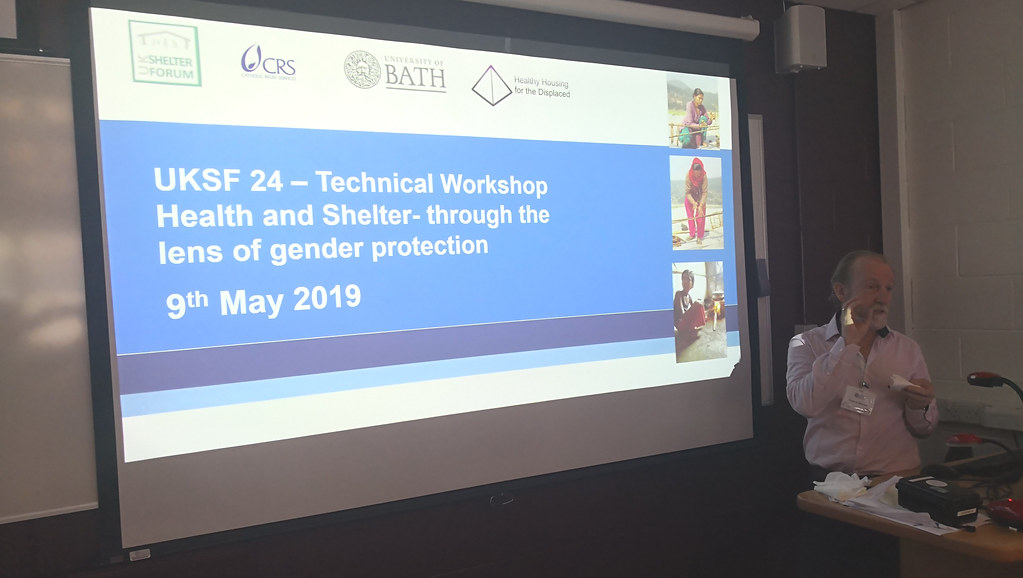The event was held at The Edge over two days from Thursday 9 - Friday 10 May 2019 and attended by over 60 people.
This year's Forum focused on 'Health and Shelter', covering a wide range of topics and areas of interest and concern, including issues that relate to both psychological and physical health and wellbeing. The meeting considered issues of shelter from a Health Sector perspective and how this could influence the way we work.
The Technical Workshop, held on the Thursday, was facilitated and hosted by a number of the University’s building design and social anthropology experts including Professor David Coley, Dr Jason Hart, Dr Stephen Lo, Dr Francis Moran and Dr Dima Albadra.
Over a number of a breakout sessions, attendees heard from leading figures working in shelter design and individuals from organisations involved in supporting refugees, as well as discussing a range of areas under the theme of 'Health and Shelter'.
The event also included a talk from a team of Nepalese women, who recounted their experiences of rebuilding homes as single women after an earthquake.
Event organiser and Research Associate in the Department of Architecture & Civil Engineering, Dr Francis Moran, commented: "The University is currently leading a £1.5 million EPSRC-funded research project ‘Healthy Housing for the Displaced’ (HHFD) which is aiming to improve the living conditions in refugee camps by designing low-cost and easy to construct housing that will moderate extremes of temperature and ensure the privacy, comfort and dignity of residents."
This interdisciplinary research team at Bath is working with international colleagues at Princess Sumaya University for Technology (Jordan), German Jordanian University (Jordan), and Mersin University (Turkey).
Over the past two years, the team has conducted the largest ever global study investigating thermal, air quality and social conditions in camps housing displaced people.
This study has helped inform the next stage of the project where the research team are utilising building physics to inform the design of shelters using novel combinations of conventional and non-conventional materials to ensure the shelters naturally stay warm in winter and cool in summer.
Prototypes of the most promising of these designs will be constructed this summer and undergo a range of thermal tests in a climate chamber at the University’s Building Research Park in Swindon. The most promising of these designs will then be transported to Jordan to test in local conditions and obtain the feedback of camp occupants and aid agencies.
Project lead, Professor David Coley, commented: “This event at Bath was an opportunity for academics to meet with those that deliver shelter in the field, and to come to grips with some of the issues, many of which are gender related. It is becoming increasingly clear that the global North needs to step up its efforts in providing housing for some of the most disadvantaged on the planet.”

